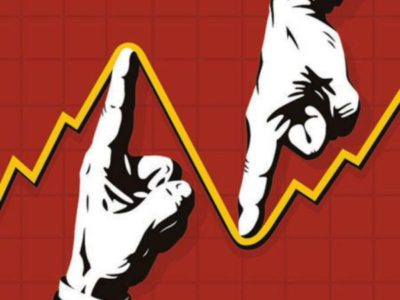Factors moving the stock market have changed! Will your financial management change, too?
Are you thinking “The stock market is doing well, my portfolio is going up, so the economy is great! Why should I be concerned or make any changes to my portfolio?” Or, “I have someone I’ve been using a long time for my finances and I’m satisfied.” These ideas and resources might have worked for you in the past, but things have changed. Here is why it is important for us to talk today.
The stock market does not represent the health of the economy!
Many people believe that the performance of the stock market represents the health of the entire economy. This is not a correct assumption. At home you watch the news and learn that the DOW gained 200 points and the S&P climbed, too, yippee! What does this really mean? The DOW Index reported on the TV news programs follows only 30 stocks of the largest companies. The S&P Index includes only 500 of the largest companies.
The S&P 500 Index does not even represent how all 500 companies in the Index are performing. Only 5 giant companies, Apple, Microsoft, Amazon, Alphabet (Google), and Facebook, are so large that their performance can move the entire Index; without these 5 companies, the S&P actually has been generally flat for the past few years (wolfstreet.com).
Consider that 331 million people are in the US, and that IRS receives returns for roughly 22 million active businesses. The entire stock market, however, is only about 6,000 stocks, so most companies are not listed on the stock exchanges and most people do not work for companies that are listed. The stock market does not represent what is happening with most companies and most people or the entire economy; it simply provides some information about the companies listed on the market that individuals might be invested in.
If the economy is not very solid, why has the stock market been going up?
Think of the current economy as a bicycle tire with a hole in it. If you leave it alone, it looks like a flat tire. But if you pump air into it faster than it can leak out, it will fill up and look like a normal, healthy tire. The leak is still there but hidden by the air being pumped into it. The current economy is like the leaky tire, and government policies have been pumping it full of trillions of dollars to make it look healthy. Whenever this effort stops, and it cannot go on forever, people will see that the economy is broken, and the stock market could react with a major correction.
Behavioral science plays a part in the continued gains in the markets. Investor mood is still positive, and the market keeps going up as new investors buy in at an even greater price and risk level. So, continuing to set new all-time highs is possible even as the economy continues to become more perilous. Market momentum or herd behavior in this direction seems wonderful, but when a new crisis arises the herd will run in a different direction and the next crash might occur.
Does this mean government policies have benefited the stock market but not the overall economy?
Low interest rates have been shrinking returns on low risk bank accounts and bonds, encouraging individuals to seek better growth in the stock market. This has helped push stock prices higher even if business performance does not warrant it. Many individuals, especially those in retirement, are taking more risk than they probably should which can have serious consequences in a market downturn.
The policy of keeping interest rates artificially low for the past decade has boosted borrowing. Personal debt (experian.com) and corporate debt are at all-time highs since the last financial crisis in 2008; student loan debt is the largest component of the government’s balance sheet (Global Finance). And now, the Federal Reserve bank is purchasing corporate debt – bonds – for the first time in its history; only Bank of America/Merrill Lynch and Fisher Asset Management are buying more. This activity conceals corporate bond defaults and lowered credit ratings of corporations, creating a bond price bubble to go along with a stock market bubble. It also means that these financial institutions are absorbing credit and default risks that could lead to another “too big to fail” situation requiring future taxpayer and investor bailouts.
Why isn’t high unemployment affecting the stock market?
High unemployment certainly affects the economy, but the impact on the stock market has been softened because of the industries affected. Hotels, resorts, restaurants, small businesses, retail, and airlines have suffered the most unemployment, but these sectors have a smaller impact on the stock market than technology, health care and financial institutions, which have suffered much less unemployment (MarketWatch). In July 2020, about 30 million people were still unemployed even though the rate of unemployment has improved as businesses attempt to reopen after the pandemic shut down; we do not know how many businesses and jobs will be permanently lost.
What do I recommend? Allow me to protect your finances!
So much of what happens around us in global business, economics, and government policies is beyond our control. Our current environment is one of increasing debt and market risk. Using a financial management system that automatically protects your portfolio from market downturns is essential for your retirement!
You do not suddenly install an airbag in your car because you feel you will be driving in a risky way that day; it should always be there to protect you because you don’t know when you will need it. Similarly, protection should always be in place for your finances because you cannot predict the day it will be needed. If the market drops by 50% again as it did in 2008, what effect will this have on your retirement plans? How much of such a potential loss are you currently protected from? How much would you like to be protected from?
Structured Products and Active Risk Management help you earn more by losing less!
Structured Products provide a nice opportunity for growth with returns linked to stock market performance and have contract features that protect you from some market risk and loss. One product available recently, for example, allows up to a 500% return over 6 years, with a 20% buffer on loss — meaning you are protected from the first 20% of market loss. Others can secure nearly all your investment principal from market loss. All these innovations can help grow and protect your money for your future needs.
Actively Risk-Managed investment strategies can be another way to achieve growth with protection. The Portfolio Medics High Yield Plus strategy, for example, is a risk-managed high yield bond portfolio that watches the market daily to minimize loss and take advantage of opportunities. High Yield Plus became defensive in February of 2020 by moving into a cash heavy position. Not only did it protect principal while the market was dropping violently, High Yield Plus has positive returns year to date. This strategy has balanced a nice return with much less risk than the stock market since its inception.
Other portfolios are available that blend in stock market exposure to enhance growth, but still have a focus on controlling risk. These Portfolio Medics Absolute Return portfolios were all positive by the end of the first quarter while the markets suffered deep, double digit losses. Investing in strategies that emphasize growth with protection by automatically moving into and out of the safety of cash makes sense because markets can behave erratically. You can earn more by losing less!
Stress test your portfolio to protect it for future needs.
Are you curious whether your current portfolio and management system will protect you adequately? We can perform a “stress test” by applying the same software to your portfolio that banks and financial institutions use to show the financial effects of economic, business, and political events. For example, we can show how much you can lose or gain with changes in oil prices, interest rates, and inflation; possible conflicts around the world; China’s economy expanding or contracting; US housing market growth or decline; changes in important technology, and so on. You will see where you are at risk for loss or where you have opportunities for growth!
Learning the answers to all these questions above is why we need to talk today!
Many individuals become my clients after a large market drop; they are upset about their losses and want to prevent it from happening again. They remembered the information about portfolio protection I had given them! Better late than never, I guess. But my goal is to protect your finances before such a big loss happens, not after. This is a great deal of information to digest, but I can explain it easily and clearly and answer questions when we discuss it. I would be delighted to forward data sheets to you that present the historical performance of all these portfolios.
I know you want to protect your retirement from future negative economic events and large expenses, and I can demonstrate easy ways for you to do this.
See how we’re doing retirement planning differently! Call today: (239) 404-6750





